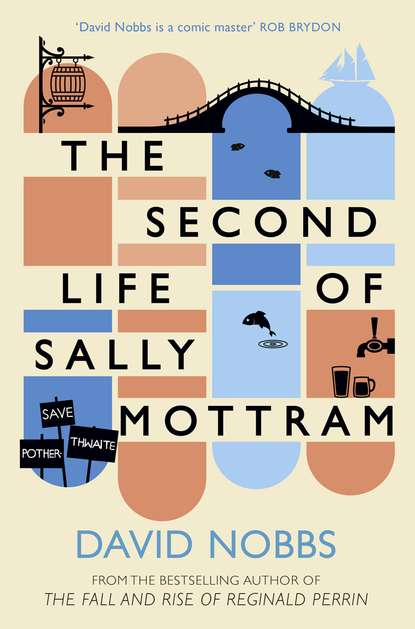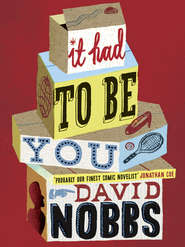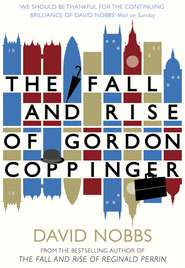По всем вопросам обращайтесь на: info@litportal.ru
(©) 2003-2024.
✖
The Second Life of Sally Mottram
Автор
Год написания книги
2018
Настройки чтения
Размер шрифта
Высота строк
Поля
Sally still hadn’t been able to use that word, and on Ellie’s lips it came like a gunshot.
‘Oh, Mrs Mottram. I’m so sorry,’ said Oli. ‘And so’s Ali. Well, she will be. Can I tell her?’
‘Please do.’
‘Thank you. Um … was it …? How did he …? I mean …’
‘Can I tell her, Mrs Mottram?’ asked Ellie.
‘Of course.’
‘She found him hanged at the top of the stairs, Oli.’
‘Oh my God. Oh my God, Mrs Mottram.’
‘I know.’
Oli left the room.
‘Thank you,’ said Sally. ‘It was nice of you to send the cake away.’
‘Not appropriate, Mrs Mottram. Not appropriate at all.’
‘I just couldn’t stay in the house any longer on my own, Ellie.’
‘No wonder.’ Sally could sense that deep inside her big head Ellie was struggling with an immense thought. ‘If you don’t want to go back,’ she said at last, ‘you could stay here. There’s my bed upstairs. Ali could go in with Oli. Gladly.’
The thought of Ali and Oli in the same bed was more than Sally could bear.
‘Gladly.’
‘I’m sure they would.’
‘They’re great, them girls. Angels. They’re angels, Mrs Mottram.’
‘They certainly are. No, that’s very kind of you, but … no … I have to face it. Get it over. Get myself tired enough, I’ll sleep.’
‘You can stay as long as you like, Mrs Mottram. And come round any time.’
‘Thank you.’
‘I’ll be here. I’m not going anywhere.’
And Sally talked about the fact that there was no note. She talked about why she thought he might have done it. She talked about her marriage and how happy she thought they had been – well, they’d had their ups and downs etc., ‘as you do’. ‘As you do,’ repeated Ellie, who had no idea really. Ellie was a good listener and Sally could see that she was truly upset for her, but she could also see that the thought of cake was slowly growing; movement of that great neck was not easy but the eyes, deep in their folds of fat, began to stray longingly towards the door, as if Ellie was an enormous Labrador, a giant Kenneth.
‘I think, Ellie, that it might be appropriate to have that cake now,’ she said.
‘Are you sure? Only I don’t want to … well, thank you,’ said Ellie. Then ‘Oli!’ she bawled. ‘Ali. Cake.’
The two angels entered with plates liberally piled with cake. Two angels killing themselves and their sister with their hearts of gold.
SIX (#ulink_116eaeda-0972-5864-be1e-44ae15b1ef2a)
A very short chapter, but fear of a very long evening (#ulink_116eaeda-0972-5864-be1e-44ae15b1ef2a)
At last it was over. Olive would never know how she got through the dessert. Very few people dislike treacle, but those who do find it a particularly difficult thing to eat.
Jill led them to the door. Arnold wasn’t very good at goodbyes.
The damp, cold night air of the cul-de-sac was as welcome to Olive as the scent of oranges on a sunny Spanish morning.
‘Thank you, that was lovely,’ she said, kissing Jill on one cheek.
‘Lovely,’ said Harry, kissing Jill on both cheeks. ‘We must do it again soon. Our turn next time.’
He was pleased that the street lights were so dim in that impoverished town. There was a chance that Jill couldn’t see the horror on Olive’s face.
SEVEN (#ulink_19310fee-b8a5-5e42-b79c-89e9eedd9b5b)
Marigold goes to a party (#ulink_19310fee-b8a5-5e42-b79c-89e9eedd9b5b)
Marigold Boyce-Willoughby was going to be very late. She was taking such a long time to get ready. It really wasn’t that surprising. The party was her first outing into Potherthwaite society since Timothy Boyce-Willoughby had ditched her for a Venezuelan dentist and ex-beauty queen, leaving her with a house she hated, a name she loved, a few happy memories, rather more unhappy memories, and sixty-two pairs of shoes. ‘Is it the shoes?’ she had asked plaintively when she had pleaded with him not to go. ‘I won’t buy any more, if it’s the shoes.’ ‘It’s not the fucking shoes, Imelda,’ he had exploded. ‘It’s that I can’t stand the fucking sight of you.’ And he was the man Potherthwaite regarded as a gentleman. Always such a gentleman. Always except at home. Thousands like him.
The party wasn’t going to be easy. She was a social climber and she no longer had a rope. She had looked wonderful on her third wedding day, dressed from head to foot in ironic white and happily married in Potherthwaite church by a vicar desperate for money. Her long train had flowed magnificently behind her. Now her train had hit the buffers. She knew what people would be saying tonight in posh Potherthwaite, that tiny enclave. Pity Marigold has such bad taste in men. Must be something wrong with her, to be ditched by three husbands. Maybe she was cold in bed. Cold in bed? Her! Or maybe she was too voracious. Wore them out. She had prided herself on being rather a good lover.
Maybe she hadn’t been a good lover. Nobody actually knew what a good lover was. She had never seen any other woman make love. Potherthwaite wasn’t Hebden Bridge.
Everyone would be thinking these sorts of things about her tonight. So why was she going? Because she couldn’t admit defeat, not to Potherthwaite, not to herself.
But what should she wear? It boiled down to a simple choice, between humility and defiance.
She could present herself as being ashamed of having been carried away by her wealthy husband, her glamorous lifestyle (for Potherthwaite – she had once met Hockney for three whole minutes and had talked about it for three whole years). She could show that at last she had realized that deep down she was still what she had always been, a modest working-class girl.
No. Wouldn’t do. Couldn’t do it. She had been born Marigold Smith. She’d hated her name. Smith. So common. Marigold, hateful. Marigolds were among the coarsest flowers in the garden. They were also washing-up gloves. And here she was, coarse and washed up.
But the name had been saved by being attached to Boyce-Willoughby. There was every chance that she had been the first person from her road ever to become double-barrelled. She had ceased to be a Dalston girl. She had become a Boyce-Willoughby, one of the Somerset Boyce-Willoughbys, and she wasn’t going to throw that away, husband or no husband. No, humility wouldn’t work, not for her. It was defiance or destruction.
So it was a lavishly dressed ex-Mrs Stent who wandered out to her waiting taxi in the cul-de-sac not much before ten o’clock on that chill Potherthwaite evening. It was a glamorous ex-Mrs Larsen who walked round on her high heels to the far side of the taxi, just in case somebody should be looking out, fusty old Arnold Buss, perhaps, who wanted to interview her for his history of Potherthwaite, or the new people whose furniture van had arrived earlier. The man had looked all right. Bald, but they said that was a sign of virility. She shuddered. That was the last thing she wanted.
It was a defiant Marigold Boyce-Willoughby who gazed out at the dreary High Street and told herself that there was now no reason why she should stay in Potherthwaite. We laugh. I know, and you suspect, that she will still be there in ten years’ time.
The taxi took her the full length of the High Street. She could feel her defiance slipping away as it rattled past the church she only entered for the sake of appearances, past the nearly-new shops she wouldn’t be seen dead in, past the end of Quays Approach. She hadn’t approached the Quays for months.
The taxi turned right where the High Street became Valley Road, sped through the empty roads towards the hills, began to climb one of the hills, passed through grand but rusty gates, crossed a large gravel forecourt, circling a fountain topped by a statue of a wool magnate, and pulled up outside a pillared entrance. This was – you’ve guessed it – Potherthwaite Hall – and the party was being held – you may have guessed this too, for we are in the twenty-first century – in one of the eight apartments into which that great house had been split.
Suddenly Marigold Boyce-Willoughby, glamorous lady, defiant spirit, brave soul, owner of many shoes, wanted to turn round and go home.
Apartment 1 was the home of Councillor Frank Stratton, owner and managing director of Stratton’s, whose stationery shops can be found in many towns around the Pennines. Frank Stratton was big in bulk, big in appetite, big in stationery, and big in charity. He wasn’t actually quite as big as he thought he was, which was why he only owned an eighth of this great house. However, Apartment 1 was the best. His lounge had been the drawing room. It was absurd to call this huge room the lounge, but he had to persuade the voters that he was still humble.











